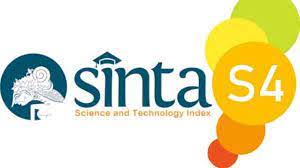استخدام الذكاء الاصطناعي لتطوير مهارات اللغة العربية في تعلمها
Artificial Intelligence Utilization for Arabic Language Skills Development in Arabic Language Learning
Abstract
This article examines the integration of Artificial Intelligence (AI) into Arabic language learning to enhance proficiency among students. Mastering Arabic in modern educational settings is particularly challenging due to its complex grammar, various dialects, and unique script. Addressing these challenges, the research explores the effectiveness of AI-driven tools in facilitating Arabic language acquisition. Using qualitative research methods, the study investigates the application of AI technologies, such as natural language processing and machine learning algorithms, to create customized learning experiences for Arabic learners. By analyzing learner interactions and feedback, the study evaluates the effectiveness of AI platforms in overcoming language learning obstacles and improving linguistic skills. The findings indicate that AI-powered language learning applications provide personalized and adaptive learning environments tailored to individual styles and preferences. The analysis shows significant improvements in vocabulary acquisition, grammar comprehension, and conversational proficiency among learners using AI-integrated platforms. The impact of AI in Arabic language learning is substantial, offering a more engaging and interactive experience while overcoming traditional barriers. AI also provides continuous feedback and progress tracking, allowing learners to monitor their development and adjust their strategies. This research highlights the potential of AI technologies to revolutionize Arabic language education, offering innovative solutions to enhance proficiency and fluency. By leveraging AI-driven tools, educators and learners can more effectively navigate the complexities of Arabic, promoting broader access to linguistic expertise and cultural understanding.
Copyright (c) 2024 Dedi Mulyanto, Muhammad Zaky, Arsyad Muhammad Ali Ridho

This work is licensed under a Creative Commons Attribution-ShareAlike 4.0 International License.
This journal provides immediate open access to its content on the principle that making research freely available to the public supports a greater global exchange of knowledge.

Komunika by http://ejournal.iainu-kebumen.ac.id/index.php/An-Nidzam/ is licensed under a Creative Commons Attribution-ShareAlike 4.0 International License
Authors who publish with this journal agree to the following terms:
- Authors retain copyright and grant the journal right of first publication with the work simultaneously licensed under a Creative Commons Attribution License that allows others to share the work with an acknowledgement of the work's authorship and initial publication in this journal.
- Authors are able to enter into separate, additional contractual arrangements for the non-exclusive distribution of the journal's published version of the work (e.g., post it to an institutional repository or publish it in a book), with an acknowledgement of its initial publication in this journal.
- Authors are permitted and encouraged to post their work online (e.g., in institutional repositories or on their website) prior to and during the submission process, as it can lead to productive exchanges, as well as earlier and greater citation of published work (See The Effect of Open Access).










1.png)


